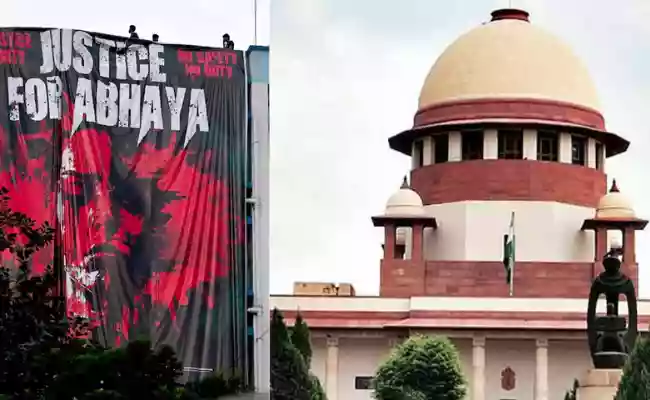Mamata calls urgent meeting at Nabanna tomorrow, key administrative officials to attend
.gif)
.gif)

The Supreme Court of India issued a stern warning to the West Bengal government, cautioning against the use of state power on peaceful protesters in the aftermath of the rape and murder of a trainee doctor at Kolkata's RG Kar Medical College and Hospital. Chief Justice of India (CJI) DY Chandrachud emphasized that the state's power should not be "unleashed on the protesters," whether they are doctors or members of civil society.
"We will indicate our broad parameters of our intervention. Let not the power of the state of West Bengal be unleashed on peaceful protesters. Whether doctors, or civil society, let there not be power of the state be unleashed on them at all," CJI Chandrachud stated during the hearing.
The three-judge bench, comprising CJI Chandrachud, Justice JB Pardiwala, and Justice Manoj Misra, expressed deep concern over the state government's handling of the situation, particularly its failure to manage the issue of vandalism at the hospital. "We are very concerned," the CJI remarked, noting that the bench was "unable to comprehend" how the state government could not effectively address the vandalism.
The court also criticized the Bengal government for the delay in handing over the victim's body to her parents, who were made to wait for nearly three hours. The Chief Justice highlighted the importance of providing safe working conditions for women, especially in the healthcare sector, and called for the development of a national protocol to ensure such safety.
"We are deeply concerned that there is a virtual absence of safe conditions for doctors working in hospitals—women doctors, resident and non-resident doctors, and the women doctors who are more vulnerable. Young doctors have to put in long hours, with no separate rest and duty room for men and women doctors, and we need to evolve a national consensus for a standard national protocol for safe conditions of work. Ultimately, what is equality under the Constitution if women cannot be safe in their workplace," CJI Chandrachud stated.